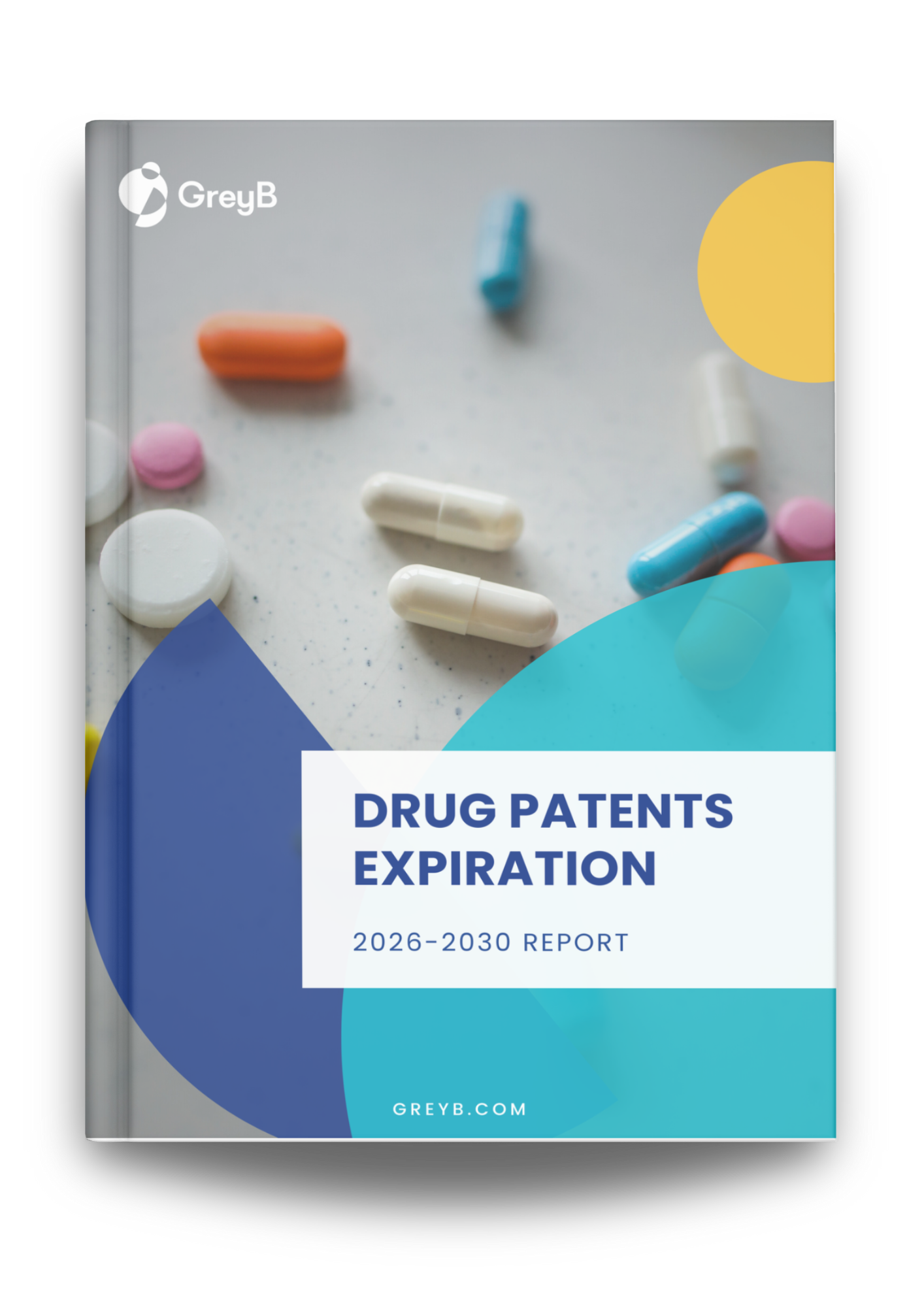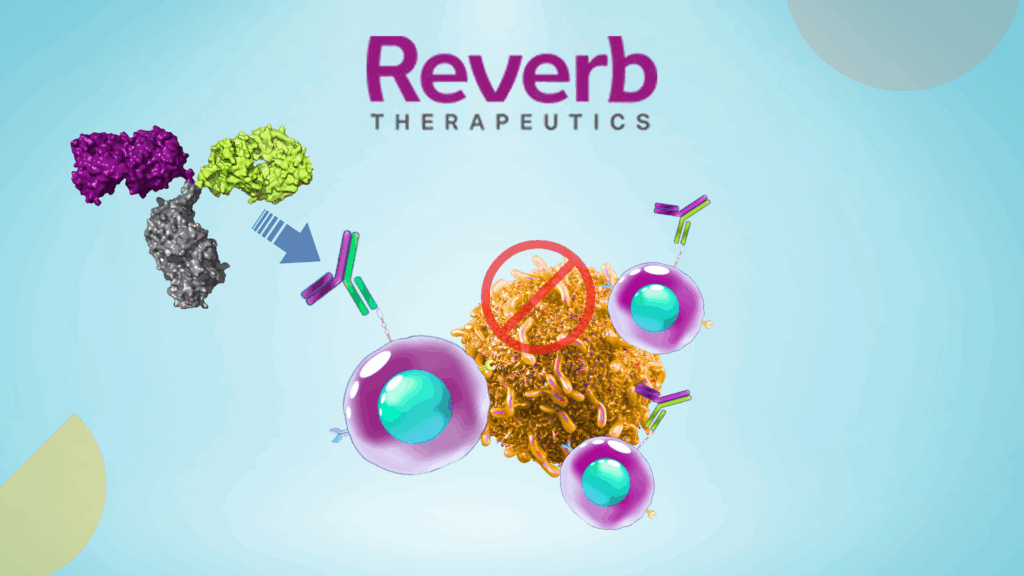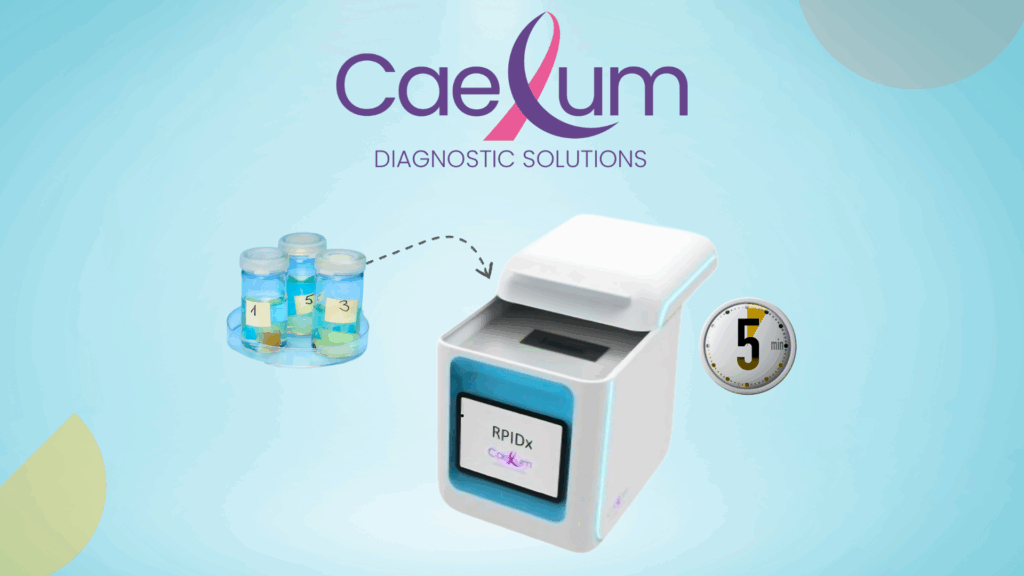The use of AI is a growing trend in the pharma industry. Technologies like cloud computing and blockchain are being implemented in tasks ranging from protocol development and patient recruitment to site selection and trial management.
The results?
“More efficient clinical trials. Quicker regulatory approvals. Ultratargeted marketing materials generated in-house,” mentions a McKinsey report.
The same McKinsey report states that these technologies can help the pharmaceutical and medical product industries generate between $60 billion and $110 billion in annual revenue. No doubt, leading pharmaceutical companies, such as Roche, Novartis, and J&J, are increasing their involvement in their drug discovery pipelines.
The article examines how these industry giants are utilizing AI tools to overcome bottlenecks and accelerate their research and development (R&D) and drug development pipelines.

1. Roche
Roche is integrating artificial intelligence, digital pathology, and data-driven clinical platforms into its core operations to become a pharma-tech hybrid.
One of the company’s key innovations in 2024–2025 is the VENTANA TROP2 (EPR20043) RxDx Assay, which recently received FDA Breakthrough Device Designation.
This AI-powered test helps doctors identify a specific protein called TROP2 in lung cancer tissue, particularly in individuals with advanced non-small cell lung cancer (NSCLC) who don’t have other treatable genetic mutations.
The tool utilizes AI algorithms to scan and measure cancer cells on digital slides, providing more accurate and faster results than traditional methods. It helps doctors determine if a patient may benefit from a targeted cancer treatment, such as datopotamab deruxtecan (Dato-DXd). This will help make cancer care more personalized and effective.
Roche is also entering the growing obesity treatment market by developing new therapies based on amylin and GLP-1, two hormones that help regulate appetite and blood sugar levels.
Partnerships
Partnership with PathAI
In early 2024, Roche Diagnostics expanded its partnership with PathAI, a medical AI company focused on pathology. Under the new agreement, PathAI will collaborate exclusively with Roche Tissue Diagnostics for a specified period to develop AI tools for companion diagnostics. These image analysis algorithms will be utilized in Roche’s Navify Digital Pathology platform, enabling laboratories to integrate them into their routine workflows easily.
The AI tools will help pathologists scan tumor samples more efficiently and with greater consistency. They automatically detect tumor cells and measure key features from digital images, replacing manual reviews that can be slower and less precise.
These tools are being integrated into standard cancer diagnosis processes to support treatment decisions, including those for therapies such as immuno-oncology and antibody-drug conjugates.
The goal is to transition AI from a lab-based concept to a tool that doctors use every day in real-world clinical settings.
This agreement builds on a previous 2021 deal, which allowed PathAI’s software to run within Roche’s Navify platform. That earlier work marked the first time third-party algorithms were fully integrated into Roche’s digital pathology system.
Ibex Integration for Breast and Prostate Cancer Research into Roche Navify Platform
Roche collaborated with Ibex Medical Analytics and Amazon Web Services (AWS) to help laboratories utilize AI-based digital pathology tools for improved cancer diagnosis.
Under this collaboration, clinicians can now access Ibex’s AI tools to support breast and prostate cancer diagnosis through Roche’s Navify Digital Pathology platform. These tools help review biopsies, prioritize cases, determine cancer grades and types, and spot other tissue features.
The software runs on AWS’s cloud, which enables labs to handle more slide images, expand to new locations, and manage growing workloads without incurring significant upfront costs. This setup supports fast, secure, and flexible scaling.
Ibex’s algorithms have demonstrated strong results in clinical studies and are already in use in hospitals across the US and Europe. While they are currently for research use only in the US, they are approved for diagnostic use in the European Union.
This partnership builds on Roche’s open platform model, demonstrating how cloud-based AI can enhance lab efficiency and expedite the pathology process. As cancer rates rise and labs face increased workload, this setup provides them with the tools to keep pace while enhancing patient care.
Acquisitions
Acquisition of Carmot Therapeutics
Roche completed the acquisition of Carmot Therapeutics, a U.S. biotech company focused on obesity and diabetes treatments, in July 2024. The deal includes a $2.7 billion upfront payment and up to $400 million in future milestone payments.
With this acquisition, Roche added three clinical-stage drug candidates to its pipeline: CT-388, CT-996, and CT-868.
The leading candidate, CT-388, is a dual GLP-1 and GIP receptor agonist. It works by activating two natural hormones in the body, GLP-1 and GIP, which help control blood sugar and reduce hunger. It is a once-weekly injection designed to treat obesity in people with or without type 2 diabetes.
CT-388 is ready for Phase 2 trials and may be effective as a single treatment or in combination with Roche’s other drug candidates, including those targeting muscle preservation. Early trial results from Phase 1b showed strong weight-loss outcomes.
The second drug, CT-996, is a daily pill being tested in early trials (Phase 1 testing). The third, CT-868, is a daily injection now in mid-stage (Phase 2) testing. It is meant for people with type 1 diabetes who are overweight or obese.
These drugs act on incretins, which are gut hormones that help control blood sugar and reduce appetite after eating. Roche sees potential in using these compounds beyond obesity and diabetes, potentially in areas such as heart disease, eye disorders, and neurodegenerative conditions.
The company also gained access to Carmot’s Chemotype Evolution platform. This technology supports the discovery of new drugs for metabolic and heart-related diseases.
This acquisition is a cornerstone of Roche’s plan to blend traditional pharmacology with real-time digital patient profiling. This will help the company develop more effective and personalized obesity treatments.
Investments
Zealand Pharma Deal – $5.3 Billion Investment in Obesity Tech
In 2025, Roche entered into a $5.3 billion agreement with Zealand Pharma to collaborate on the development of new treatments for obesity. The primary focus is on petrelintide, an experimental drug that acts like a natural hormone (amylin) to control hunger and blood sugar levels. Roche plans to combine it with its drug, CT-388, to offer a dual-hormone treatment for obesity. The deal also includes plans to create digital tools to help track and manage health.
Top 10 Pharma Companies
2. Novartis
Novartis uses AI to choose trial sites and design digital clinical trials from start to finish. This has helped reduce delays in picking trial locations and finding the right patients. Since mid-2024, the company has utilized AI tools that review data from hundreds of thousands of trial sites and doctors to expedite trial setup and enhance patient diversity.
The company’s computational science teams publish their research at major AI conferences, such as NeurIPS and ICLR. They aim to shift most early drug design work to computer-based models.
Novartis is also exploring the use of quantum computing to solve complex problems in molecular simulation. This helps improve prediction accuracy and makes it easier to pick the right drug candidates.
Partnerships
AI Partnership with Generate: Biomedicines
Novartis has signed a drug discovery agreement with Generate:Biomedicines, a biotech company backed by Flagship Pioneering that uses artificial intelligence to design new protein-based medicines.
The deal is worth up to $1 billion. Novartis will pay $50 million upfront and invest another $15 million in Generate’s equity. The agreement covers several disease areas and targets, though specific details haven’t been shared.
Generate uses AI to study the three-dimensional shapes of proteins. By understanding how proteins fold and behave, the company can design new drugs that target specific sites more efficiently than traditional methods. This approach may help reach disease targets that have been difficult to treat. Its pipeline includes around 17 drug programs for cancer, immune system diseases, and infections. Its most advanced drug is an antibody treatment for asthma.
Novartis said the partnership combines its knowledge in drug development and clinical testing with Generate’s AI platform. The goal is to develop new treatments that can help address medical needs in a more targeted and efficient manner.
Strategic Collaboration with Schrödinger
In late 2024, Novartis entered a multi-year deal with Schrödinger, investing $150 million upfront and up to $2.3 billion in earnouts. Schrödinger’s physics-based computational chemistry tools will now be accessible to all Novartis research teams. This results in a “predict-first” approach to lead identification, particularly in oncology programs entering clinical development.
Collaboration with Microsoft AI Innovation Lab
Building on its 2019 alliance, Novartis further amplified its AI partnership with Microsoft in 2024. In this collaboration, they have created the AI Innovation Lab to apply artificial intelligence in drug research and development. The goal is to expedite the process of discovering new treatments and enhance their accuracy.
Microsoft’s AI tools help Novartis sort through large datasets, including scientific studies, clinical trial results, and patient records. This enables researchers to identify new treatment ideas and select the most promising ones for further development. The lab also works on improving clinical trials.
AI helps design better studies, match patients with the proper trials, and predict the outcomes of those trials. This can make the process faster and more efficient.
Another part of the collaboration focuses on personalized medicine. By studying each person’s genetic information and medical history, the lab aims to develop treatments that are more tailored to individual patients. This approach can improve results and lower the chance of side effects.
The partnership enables Novartis to work more efficiently by leveraging AI to automate tasks that would typically require significantly more time and effort. It also helps decide where to focus time and money by showing which research projects are most likely to succeed.
Acquisitions
Acquisition of Anthos Therapeutics
In February 2025, Novartis agreed to buy Anthos Therapeutics, a company it co-founded with Blackstone, for up to $3.1 billion. The primary drug in Anthos’s pipeline is abelacimab, which blocks a clotting protein called factor XI. It is being tested in advanced Phase 3 trials for stroke prevention and reducing the risk of blood clots.
This deal helps Novartis fill gaps in its portfolio caused by upcoming patent losses, such as with Entresto. It also introduces a new, biologically based heart drug to strengthen its cardiovascular lineup.
Acquisition of MorphoSys
Novartis acquired MorphoSys for approximately €2.7 billion in mid-2024. This gains the company access to MorphoSys’s cancer-focused antibody platforms and AI integration capabilities. Following the acquisition, MorphoSys’s computational antibody design tools are being integrated into Novartis’s biologics R&D workflows.
Investments
Investment in Yseop for Trial Report Automation
In late 2023, Novartis invested in Yseop, an NLP and generative AI firm specializing in automating clinical trial report writing. This move aims to streamline regulatory submissions and improve the speed and accuracy of medical writing processes.
3. Johnson & Johnson
Johnson & Johnson is focusing on two major areas in healthcare: improving surgical workflows through digital tools and expanding its work in brain-related and biologic treatments.
For surgery, the company has introduced the Polyphonic digital system, which supports video-based surgical planning, remote collaboration during surgery, and real-time insights in the operating room. This system is still in testing and is expected to launch more widely in 2025.
In its pharmaceutical division, Johnson & Johnson is increasing its use of AI in drug discovery and research. It is developing a large data platform called Med.AI to support molecule design and help group patients based on specific traits. The company is also using AI models that can predict and generate new treatment ideas.
On the commercial side, J&J continues to combine technology with its medical products. In orthopedics, for instance, its VELYS robotic knee surgery system, cleared by the FDA in 2021, gives the company a place in the growing field of robotic surgery.
Partnerships
NVIDIA Partnership
In March 2024, Johnson & Johnson MedTech announced a partnership with NVIDIA to expand the use of artificial intelligence (AI) in surgery by enabling real-time data analysis and scalable AI applications within the operating room.
Through a signed memorandum of understanding, the collaboration aims to integrate NVIDIA’s healthcare AI platforms with Johnson & Johnson MedTech’s digital surgery ecosystem.
A key focus of this partnership is edge computing, which enables the processing of surgical data directly within the operating room. This local data handling reduces delays, avoids unnecessary data transfer, and allows AI tools to run quickly and securely where they are needed most. NVIDIA’s IGX and Holoscan platforms will serve as the foundation for delivering these low-latency AI capabilities at the surgical site.
Johnson & Johnson MedTech plans to use these tools to grow its open ecosystem for connected surgery. The goal is to make surgery more connected, informed, and responsive to individual patient needs.
J&J – Apple AFib Watch Study
J&J and Apple collaborated on the Heartline Study, a first-of-its-kind virtual clinical trial for seniors aged 65 and above.
The study aims to determine whether an iPhone app and Apple Watch’s ECG and irregular rhythm notifications can detect atrial fibrillation early and reduce the risk of stroke. This extensive study (launched in 2020) demonstrates J&J’s willingness to partner with consumer tech to generate evidence for digital tools in healthcare.
Acquisitions
Acquisition of Ambrx Biopharma
On March 7, 2024, Johnson & Johnson completed its purchase of Ambrx Biopharma Inc., a company developing targeted cancer treatments. The deal was an all-cash transaction valued at $2 billion, or $1.9 billion after accounting for Ambrx’s estimated cash on hand.
Ambrx offers a platform that utilizes synthetic biology to construct antibody-drug conjugates, or ADCs. These treatments link lab-made antibodies to powerful cancer-killing drugs. The goal is to deliver these drugs directly to tumor cells while avoiding healthy ones, which helps limit common side effects of chemotherapy.
The acquisition gives Johnson & Johnson access to ARX517, Ambrx’s lead drug candidate. It is designed to target PSMA, a protein found in prostate cancer, and is being tested in advanced clinical trials for men with metastatic castration-resistant prostate cancer. Johnson & Johnson sees this drug as a possible first-in-class and best-in-class option in this area.
The move aligns with Johnson & Johnson’s broader plan to expand its cancer treatment lineup with more precise, biologic therapies. The company aims to build on Ambrx’s science and pipeline to develop drugs for solid tumors that offer better outcomes with fewer side effects.
$850 M Proteologix Acquisition Deal
On June 21, 2024, Johnson & Johnson completed its acquisition of Proteologix, Inc., a privately held biotech company that develops bispecific antibodies for immune-related diseases. The deal includes a cash payment of $850 million, with the potential for additional payments based on future milestones.
Proteologix brings two early-stage drug candidates, PX-128 and PX-130, which are designed to treat moderate to severe atopic dermatitis and asthma. These drugs work by blocking multiple immune pathways simultaneously, which may enhance their ability to control inflammation in these conditions.
In addition to these two lead programs, the acquisition adds eight more bispecific antibody projects that could be used to treat a range of other immune system disorders.
This move supports Johnson & Johnson’s strategy to expand its pipeline of targeted treatments for chronic diseases caused by an overactive immune system. With this acquisition, Johnson & Johnson plans to continue developing these therapies and fold the Proteologix team into its Immunology business.
Intra‑Cellular Therapies Acquisition
On January 13, 2025, Johnson & Johnson announced an agreement to acquire Intra-Cellular Therapies, Inc. for $132.00 per share in cash, valuing the deal at approximately $14.6 billion. The company will utilize a combination of cash and debt to finance the purchase. The deal is expected to close later in 2025, pending approval from shareholders and relevant regulatory authorities.
Through this deal, Johnson & Johnson gains CAPLYTA (lumateperone), an oral drug approved by the FDA to treat adults with schizophrenia and depressive episodes tied to bipolar I and II disorders. The drug is approved for use both on its own and with standard mood stabilizers like lithium or valproate.
Intra-Cellular also recently submitted CAPLYTA for FDA approval as an add-on treatment for major depressive disorder. If cleared, it would be the first treatment approved in over 15 years to cover both major depressive disorder and bipolar depression.
The acquisition also includes a clinical-stage pipeline led by ITI-1284, a compound being tested for generalized anxiety disorder and behavior symptoms linked to Alzheimer’s disease. The broader pipeline supports Johnson & Johnson’s focus on mental health and brain-related diseases.
Investments
$55 Billion U.S. Manufacturing Investment
Announced in March 2025, J&J committed $55 billion over four years to expand U.S. manufacturing. The company plans to open four new manufacturing plants in the US, including a new $2 billion biologics site in North Carolina.
This investment underscores its ambition to scale production of AI-backed therapies and complex biologics, thereby ensuring robust supply chain management.
Top 10 Biotech Companies
4. Merck & Co. (MSD)
Over the past year, Merck has integrated generative AI platforms, such as Variational AI’s Enki, to generate novel small-molecule candidates. It helps reduce design cycle time by responding to target profiles with molecular structures. Alongside, it’s leveraging AI/GenAI analytics with BCG X to mine multi-omics datasets for novel drug target discovery in chronic diseases.
On the manufacturing front, Merck has adopted Siemens’ Xcelerator innovative factory platform as part of its Smartfacturing initiative. This enables modular automation and advanced process controls, supporting faster product scale-up and quality assurance. These innovations collectively aim to reduce early-stage attrition and drive manufacturing excellence.
Partnerships
Siemens Smartfacturing Pact
In September 2024, Merck signed an MoU with Siemens to accelerate its digital transformation in manufacturing. Centered on the Siemens Xcelerator platform, the partnership introduces a governance structure for plug-and-play automation modules.
Acquisition
Acquisition of Harpoon Therapeutics
In January 2024, Merck finalized its $680 million acquisition of Harpoon Therapeutics to strengthen its cancer treatment pipeline. The acquisition brings Harpoon under MSD’s umbrella as a wholly owned subsidiary.
With this acquisition, MSD gains access to Harpoon’s promising cancer-fighting drugs( TriTAC-XR®-based T-cell engagers), especially MK-6070 (earlier called HPN328). This drug helps the body’s immune system, specifically T-cells, find and attack cancer cells that produce a protein called delta-like ligand 3 (DLL3). This protein is often found in small-cell lung cancer (SCLC) and neuroendocrine tumors.
MK-6070 is currently being tested in early-stage clinical trials to see how safe and effective it is, on its own (monotherapy) and when used with another drug called atezolizumab. It also received special recognition from the FDA as an “orphan drug,” meaning it’s meant for a rare and hard-to-treat disease.
The deal also grants MSD other drug candidates, including HPN217, which is aimed at treating multiple myeloma, and HPN601, an early-stage drug targeting cancer cells that express the protein EpCAM.
Buyout of Modifi Biosciences
In a bold move to strengthen its oncology pipeline, MSD (known as Merck & Co. in the U.S. and Canada) has acquired Modifi Biosciences. It’s a Yale University spinout focused on targeting difficult-to-treat brain tumors, including glioblastomas.
Modifi, founded in 2021, is developing a new class of small molecules that target cancer cells lacking O6-methylguanine-DNA methyltransferase (MGMT). This is a DNA repair protein whose absence is commonly linked to glioma subtypes and resistance to current therapies.
The acquisition includes an upfront payment of $30 million, with potential milestone payments reaching $1.4 billion. MSD views this acquisition as a key part of its strategy to diversify its oncology pipeline.
Investments
Merck Global Health Innovation Fund – IDEA Studios
In June 2024, MSD launched IDEA Studios in Singapore and Berlin under its Global Health Innovation Fund, committing $38 million over three years. The initiative aims to invest in and partner with startups that develop digital health, remote monitoring, and early diagnostics solutions.
5. AstraZeneca
Over the past two years, AstraZeneca has integrated generative and predictive AI into its research and development operations. In 2025, its R&D teams began testing AI tools for CT scan analysis, clinical document review, and protocol writing. These tools are being utilized in hundreds of clinical trials to enhance study design, ensure compliance, and expedite timelines. The company also launched multilingual AI training programs to build internal skills.
At the same time, AstraZeneca introduced digital twins, machine learning, robotics, and connected devices at key manufacturing sites in Södertälje, Sweden, and Wuxi, China. These changes increased productivity by over 50 percent, reduced development lead times by nearly two-thirds, and cut the number of flawed production batches by 80 percent.
Through its Axial transformation program, AstraZeneca rebuilt its core business systems. It implemented SAP’s life sciences tools to digitize more than 1,500 workflows across its finance, R&D, commercial, and supply chain operations.

In 2023, AstraZeneca launched Evinova, a digital health business designed to modernize clinical trials. Evinova supports remote patient monitoring, digital consent, and real-time data collection to enable virtual and hybrid trials. Other pharmaceutical companies and contract research organizations also use its services.
By the end of 2023, Evinova had formed partnerships with research firms such as Parexel and Fortrea, as well as tech providers including Accenture and AWS. These efforts demonstrate AstraZeneca’s focus on utilizing digital tools to enhance trial design and reduce costs.
Partnerships
AI Kidney Disease Detection with Aptar
In May 2025, AstraZeneca partnered with Aptar Digital Health to develop artificial intelligence tools for the early detection of chronic kidney disease (CKD). The collaboration uses AI algorithms developed by AstraZeneca to analyze eye scans for signs of CKD. This method follows a similar approach used in diabetes care, where eye exams help spot early complications. The goal is to bring this technology into routine clinical use to support earlier diagnosis of CKD and other heart, kidney, and metabolic conditions.
AstraZeneca already markets Farxiga (also called Forxiga), the first drug in its class approved for treating CKD. The company is building on this foundation with a group of combination treatments that include baxdrostat, balcinrenone, and zibotentan.
This new AI project complements AstraZeneca’s digital health strategy, which includes collaborations with Health2Sync to categorize patients by lab results and track worsening symptoms, as well as with HealthShare on digital screening tools.
The company is also testing a quick scanning device from ImpediMed in its CKD drug trials. The device uses bioimpedance spectroscopy to measure body fluid levels and tissue structure in under 30 seconds.
$5.3 Billion AI Collaboration with CSPC Pharmaceuticals
In June 2025, AstraZeneca entered a research partnership with CSPC Pharmaceuticals to discover new oral treatments for chronic and immune-related diseases. The agreement is worth up to $5.3 billion, with $110 million due upfront, and the remainder tied to future development milestones and royalties. The work will rely on CSPC’s artificial intelligence platform, which supports drug discovery at the early, preclinical stage.
Investments
$2.5 Billion Investment in China’s R&D and Manufacturing Footprint
In March 2025, AstraZeneca committed $2.5 billion to establish its sixth global R&D center in Beijing, as well as a vaccine manufacturing joint venture with BioKangtai.
This investment also includes partnerships with Harbour BioMed and Syneron Bio, focusing on antibodies, peptides, and vaccines, backed by an AI and data science lab. The move strengthens AstraZeneca’s presence in its second-largest market and supports its 2030 objectives.
Pharma Packaging Challenges & Solutions
6. Sanofi
Sanofi is facing two pressing challenges: sluggish drug development cycles and the growing demand for intelligent, adaptable manufacturing.
The company recently launched its third Digital Accelerator in Lyon, France. This marks a significant milestone in its transformation into the first AI-powered biopharma company operating at scale.
This new accelerator is dedicated to the digitalization of its global Manufacturing & Supply (M&S) network. It represents a strategic leap in embedding artificial intelligence across every stage of pharmaceutical production—from discovery to delivery.
The goal is clear: reduce the time it takes to bring life-saving treatments to patients by up to a year, while making the entire process faster, more agile, and cost-effective.
The team is deploying advanced tools, including digital twins for virtual production simulations, AI combined with IoT for real-time monitoring, and scalable platforms to enhance global supply chain resilience.
This initiative builds on the success of Sanofi’s first two digital accelerators. One of these is focused on patient-centric solutions, which has already improved treatment adoption. Another is focused on R&D, which has helped identify seven new therapeutic targets and advanced personalized medicine through its Patient Digital Twin technology.
With AI now deeply embedded in its core operations, Sanofi is just modernizing its systems and reimagining the way medicines are developed, manufactured, and delivered.
The company is also making strategic collaborations and partnerships to accelerate its AI-focused approach.
Partnerships
AI Alliance with OpenAI & Formation Bio
In a first-of-its-kind tri-party agreement, Sanofi combined its proprietary R&D datasets with OpenAI’s model capabilities and Formation Bio’s tech infrastructure. The objective is to design AI agents tailored for drug development, from the ideation stage to clinical trial optimization.
CEO Paul Hudson termed this alliance “the next significant step in our journey to becoming a pharmaceutical company substantially powered by AI.”
Partnership with BioMap for Biologic Discovery
Sanofi entered a deal with AI-driven biotech firm BioMap, targeting next-gen biologic candidates. Although financial terms weren’t disclosed, the collaboration holds potential value up to $1 billion, focusing on leveraging AI to hunt therapeutic antibodies and proteins.
Acquisitions
Vigil Neuroscience Buyout
On May 22, 2025, Sanofi announced its acquisition of Vigil Neuroscience, a biotech company specializing in treatments for neurodegenerative diseases. The deal is valued at approximately $470 million in cash, with an additional potential payment of $2 per share if Vigil’s lead drug, VG-3927, reaches commercial launch.
This acquisition expands Sanofi’s early-stage neurology pipeline by adding VG-3927, an oral drug candidate designed to treat Alzheimer’s disease.
VG-3927 works by activating a protein called TREM2, which helps immune cells in the brain (called microglia) clear harmful waste and protect nerve cells. The drug is being prepared for Phase 2 clinical trials.
This move builds on Sanofi’s earlier $40 million investment in Vigil in June 2024, which included the right to negotiate exclusive rights to VG-3927.
Now, with full ownership, Sanofi aims to accelerate the development of this treatment for people with Alzheimer’s disease, who currently face limited options and a high unmet need.
The acquisition does not include Vigil’s second drug program, VGL101.
Acquisition of Inhibrx
On May 30, 2024, Sanofi completed its acquisition of Inhibrx, Inc. in a deal valued at about $1.7 billion in cash. Former shareholders may also receive an extra $5 per share if a future regulatory milestone is met.
The acquisition adds SAR447537 (previously known as INBRX-101) to Sanofi’s pipeline for the treatment of rare diseases. It is a lab-made protein being developed to treat alpha-1 antitrypsin deficiency (AATD), a genetic condition that causes low levels of a protective protein in the lungs. This can lead to long-term lung damage. The treatment aims to help patients reach normal protein levels with monthly doses instead of weekly ones. This could make treatment more convenient and may help reduce lung inflammation, slowing down disease progression.
After the transaction, Inhibrx became a wholly owned subsidiary of Sanofi. This move supports the company’s long-term strategy to expand its portfolio of rare disease treatments with promising new therapies.
Note: Before the deal closed, Inhibrx transferred its other assets, including INBRX-109 and INBRX-1061, into a new company called Inhibrx Biosciences, Inc.
7. GlaxoSmithKline (GSK)
Over the past year, GSK (GlaxoSmithKline) has implemented advanced AI-powered discovery tools and smart-factory technologies to enhance productivity and precision across its value chain.
The company has built an internal Artificial Intelligence and Machine Learning (AI/ML) team with over 120 experts. It is among the largest in the pharmaceutical industry.
This team, dubbed GSK.ai, works closely with R&D to integrate AI into workflows like molecule design, clinical trial analytics, and forecasting.
The AI team supports drug discovery and trial processes with predictive analytics in clinical biomarker stratification, multi-omics target validation, and disease-risk modelling (e.g., lupus, hepatitis B). Additionally, GSK utilizes generative platforms, such as Exscientia and Cloud Pharmaceuticals, to design novel molecules more quickly and cost-effectively.
GSK demerged its Consumer Health division (now Haleon) in 2022 to concentrate on biopharmaceuticals. The new GSK is focused on vaccines and specialty medicines, particularly in infectious diseases, HIV (through its ViiV joint venture), immunology, and oncology. Its Key growth products include Shingrix (the blockbuster shingles vaccine), the new RSV vaccine Arexvy, and HIV treatments like dolutegravir-based regimens.
The company’s motto is to launch “first-in-class” or “best-in-class” medicines backed by strong evidence (often genetic or biomarker-driven evidence).
For example, in immunology, GSK has invested in therapies like Nucala (the first biologic for eosinophilic asthma) and is developing others targeting specific immune pathways (one was via the acquisition of Sierra Oncology for a BET inhibitor in myelofibrosis).
Collaborations
AI Collaboration with Relation
On December 10, 2024, GSK entered a collaboration with Relation, an AI-focused biotech company based in London, to discover new treatment targets for fibrotic diseases and osteoarthritis. GSK committed $45 million upfront, which includes a $15 million equity investment. The agreement also allows for up to $63 million in success-based payments and as much as $200 million in milestone payments for each target.
The relation will lead to two observational studies to create detailed data sets. It will use its “Lab-in-the-Loop” platform, which combines human genetics, tissue data, lab testing, and machine learning, to identify potential drug targets. GSK will take over drug development and commercialization if those targets lead to promising medicines. If these drugs reach the market, Relation will receive tiered royalties based on sales.
This partnership reflects GSK’s goal to enhance early drug research by utilizing data tools to gain a deeper understanding of disease biology. It also supports GSK’s broader effort to develop new medicines for conditions such as fibrosis and osteoarthritis, which currently lack reliable long-term treatment options.
Investments
Smart Manufacturing & Digital Twins Initiative
GSK invested in a smart manufacturing transformation, deploying digital twin models across 60 of its factories. This is to simulate production scenarios, predict quality deviations, optimize equipment usage, and reduce batch failures. The initiative includes paperless batch records, real-time AI monitoring, and workforce upskilling through “data cons” involving ~7,000 employees to embed digital fluency.
Top 10 Startups Leading Drug Discovery
8. AbbVie
AbbVie, formed in 2013 after separating from Abbott, built its success on biologic drugs like Humira. To maintain its pace of innovation, the company is utilizing AI and data tools.
AbbVie is utilizing artificial intelligence to transform the process of discovering, designing, and delivering new drugs to patients. Its internal platform, ARCH, launched in 2024, connects over 2 billion data points across 200 data sources to help scientists identify patterns across genetics, clinical trials, and molecular research.
By integrating data silos, this system helps identify patterns and novel insights, speeding up target discovery and optimizing drug design. The company claims that ARCH (AI/ML) could potentially halve the time required for drug development.
With the aid of generative AI and protein language models, AbbVie engineers antibodies and drug compounds on computers before conducting lab testing, thereby making the process faster and more efficient.
The company is also applying machine learning in precision medicine to tailor treatments for specific patient groups, particularly in areas such as immunology and oncology. These AI-driven approaches aim to reduce development time, enhance the effectiveness of drugs, and expedite the delivery of new therapies to patients.
Collaboarations
Agreement with ConcertAI and Caris Life Sciences
Since January 2024, AbbVie has collaborated with ConcertAI and Caris Life Sciences to leverage real-world clinical-genomic data in oncology. The multi-year agreement integrates AI/ML insights to improve trial design, patient selection, and biomarker stratification—factors critical to precision medicine and optimized clinical trial outcomes.
Collaboration with BigHat Biosciences – AI-Engineered Antibodies
In late 2023, AbbVie and BigHat Biosciences signed a research collaboration. Under this partnership, AbbVie can utilize BigHat’s Milliner™ AI platform for antibody discovery in oncology and neuroscience.
As part of the deal, BigHat will receive a $30 million upfront payment and may earn up to $325 million in research and development milestones, along with additional commercial milestone payments and tiered royalties on future net sales. This collaboration aligns with AbbVie’s broader strategy to integrate AI/ML technologies into its drug discovery workflows.
Acquisitions
Acquisition of Aliada Therapeutics
AbbVie has announced the acquisition of Aliada Therapeutics for $1.4 billion to strengthen its efforts in treating Alzheimer’s disease and other brain-related conditions. This acquisition grants AbbVie access to a potentially best-in-class Alzheimer’s therapy, ALIA-1758, and a breakthrough drug delivery platform called MODEL.
Aliada’s MODEL platform helps medicines cross the blood-brain barrier (BBB), a significant challenge in treating central nervous system (CNS) disorders.
The highlight of this deal is ALIA-1758, Aliada’s lead drug currently in Phase 1 clinical trials. It’s an antibody that targets pyroglutamate amyloid beta (3pE-Aβ). It is a protein that is a key driver of harmful plaques in the brains of Alzheimer’s patients.
What sets ALIA-1758 apart is its use of the MODEL™ platform to cross the BBB by targeting transferrin receptors (TfR). This allows it to reach the brain and clear these plaques more effectively.
AbbVie sees enormous potential in both the drug and the delivery platform. The MODEL™ technology can also be used to transport other types of treatments, like siRNA and antibodies.
According to Roopal Thakkar, M.D., AbbVie’s Chief Scientific Officer, the acquisition aligns with the company’s strategic focus on neuroscience. It brings new momentum to its mission of tackling severe neurological conditions.
Acquisitions of ImmunoGen
In February 2024, AbbVie acquired ImmunoGen for $10.1 billion to strengthen its position in the cancer treatment space, particularly for ovarian cancer.
The key asset gained through this deal is ELAHERE® (mirvetuximab soravtansine-gynx). It is the first FDA-approved antibody-drug conjugate (ADC) specifically for folate receptor-alpha (FRα) positive, platinum-resistant ovarian cancer—a hard-to-treat form of the disease.
ELAHERE is a type of targeted cancer therapy that combines an antibody with a potent cancer-killing drug. These are linked together in a way that delivers the drug directly to tumor cells while minimizing harm to healthy ones. It utilizes a molecule that binds to FRα, a protein commonly found in ovarian cancer cells, to deliver a potent chemotherapy payload called DM4. This disrupts cell division and causes the death of cancer cells.
ELAHERE is already approved under the FDA’s accelerated approval pathway. AbbVie plans to expand its use into earlier treatment stages and broader patient groups.
Alongside this, AbbVie will get access to ImmunoGen’s pipeline of next-generation ADCs in oncology. This includes IMGN-151 (a newer FRα-targeting ADC for ovarian and other solid tumors) and pivekimab sunirine (targeting a rare blood cancer called BPDCN). The acquisition also enhances AbbVie’s capabilities in antibody engineering, linker chemistry, and toxin design, making it better equipped to develop targeted treatments for both solid tumors and blood cancers.
Acquisition of Cerevel Therapeutics
AbbVie completed its acquisition of Cerevel Therapeutics in 2024 for $8.7 billion, strengthening its neuroscience pipeline with multiple advanced drug candidates.
Cerevel focuses on therapies for neurological and psychiatric conditions, including schizophrenia, Parkinson’s disease, depression, epilepsy, and mood disorders.
One of its lead drugs is emraclidine, a new type of treatment for schizophrenia that helps regulate brain activity and is now in advanced Phase 2 trials.
Another vital drug is tavapadon, which partly activates dopamine receptors to treat Parkinson’s disease. It recently demonstrated positive results in a Phase 3 trial and is being evaluated both as a standalone treatment and in combination with other therapies.
The deal also gives AbbVie access to CVL-354, which targets a brain receptor linked to depression and is in early-stage testing. It also includes darigabat, a treatment in Phase 2 trials for epilepsy and panic disorder that works by calming overactive brain signals.
AbbVie’s CEO stated that the acquisition will enable the company to deliver long-term breakthroughs in brain and nervous system disorders.
9. Pfizer
Pfizer has zeroed in on two core challenges: accelerating clinical development workflows and optimizing large-scale drug manufacturing. Over the past year, the company has pursued an ambitious AI integration strategy across both domains.
In 2024, Pfizer equipped its global workforce of 80,000 employees with Microsoft Copilot to integrate AI into everyday tasks, such as drafting reports, emails, and internal communications. This cultural shift aims to build company-wide AI fluency and operational efficiency.
On the manufacturing front, Pfizer rolled out a generative AI platform hosted on AWS in late 2023, enabling real-time analysis of production data through Bedrock and SageMaker. This initiative identifies process anomalies, recommends corrective steps, and has led to a 20% increase in throughput and a 25% reduction in cycle time.
The company significantly expanded its use of AI in clinical development, deploying tools that enhance biomarker-based patient segmentation, protocol design, and regulatory readiness through NLP-driven insights.
Parternships
Saama AI Platform – Enhanced Clinical Data Review
Pfizer has expanded its strategic partnership with Saama, a provider of AI-driven clinical development solutions, through a multi-year agreement announced on February 12, 2024. Building on their collaboration that began in 2020, the partnership initially focused on automating Pfizer’s data review processes using Saama’s Smart Data Quality (SDQ) platform. This notably accelerated timelines during the company’s COVID-19 vaccine development.
The new agreement scales the use of SDQ across Pfizer’s global study portfolio to enhance data review, reconciliation, and quality assurance. Additionally, the collaboration now includes Saama’s Biometrics Research and Analysis Information Network. It is a next-generation platform that streamlines statistical programming, biostatistics workflows, and regulatory submissions by generating submission-ready tables, listings, and figures (TLFs). This solution aims to reduce regulatory submission timelines and further automate the trial process.
Ignition AI Accelerator Partnership
Pfizer has joined the Ignition AI Accelerator in Singapore as one of its key biopharmaceutical partners, alongside other industry leaders such as Bayer and Novartis. This accelerator is a collaborative effort among NVIDIA, Tribe, and Digital Industry Singapore (DISG), aimed at accelerating AI adoption in healthcare and drug development. It is part of Singapore’s Research, Innovation and Enterprise (RIE) 2025 plan, a strategic initiative backed by SGD 25 billion to accelerate innovation in science and technology.
Through this partnership, Pfizer will explore and co-develop AI solutions to address challenges in drug discovery, manufacturing, supply chain management, and scientific engagement with healthcare professionals.
The program gives Pfizer access to a strong ecosystem of AI startups, researchers, and cloud computing resources (including NVIDIA’s platforms). This initiative provides the company with a strategic advantage in developing next-generation AI solutions for the biopharmaceutical sector.
Expanded Collaboration with PostEra
In January 2025, Pfizer expanded its collaboration with PostEra, a startup specializing in AI-driven medicinal chemistry. The new agreement is valued at up to $350 million. Under the latest deal, Pfizer will pay $12 million upfront, with the remaining tied to research and development milestones. This expanded partnership introduces antibody-drug conjugates (ADCs) into the collaboration, marking new ground for the two companies.
The relationship began in late 2020, when Pfizer enlisted PostEra to apply machine learning to the design of small-molecule drugs. In early 2022, Pfizer broadened the collaboration to include antivirals and cancer therapies, paying $13 million upfront with potential milestone payments of up to $248 million. PostEra’s AI models will now support Pfizer in designing both small molecules and ADCs, further deepening the integration of artificial intelligence into the pharmaceutical giant’s drug discovery efforts.
OpenAI Collaboration for Antibiotic Development
In March 2025, Pfizer announced a $2 billion investment in an AI-driven antibiotic discovery platform, developed in collaboration with OpenAI. This initiative aims to combat the growing threat of multidrug-resistant bacteria (MDR). This platform will utilize advanced molecular modeling to rapidly analyze molecular structures, predict resistance patterns, and optimize antibiotic candidates.
The initiative marks a significant shift toward automated and predictive pharmaceutical R&D, with AI algorithms simulating bacterial evolution to anticipate resistance and inform formulation strategies. The platform also supports automation of compound synthesis, screening, and manufacturing, enabling faster timelines and reduced costs. Beyond antibiotics, this initiative signals Pfizer’s broader move toward AI-integrated laboratories.
10. Moderna
Since early 2024, Moderna has integrated generative AI technologies, like OpenAI’s ChatGPT Enterprise, across its R&D, manufacturing, legal, and commercial units. This transformation encompasses hundreds of custom GPT agents, including Dose ID GPT, which optimizes clinical dose selection, and internal chatbots such as mChat.
The company also launched an internal AI Academy to scale digital fluency and promote a culture of AI innovation.
On the manufacturing front, Moderna is establishing three new mRNA production plants (UK, Australia, Canada) by 2025.
“We have the largest late-stage pipeline of mRNA medicines in the world, and we will continue to focus on positively impacting human health. While there is work to be done to meet our execution targets and build our commercial capabilities, I am confident that our team will continue to work relentlessly to achieve our goals.”
- Stéphane Bancel, CEO of Moderna Therapeutics
Partnerships
OpenAI Partnership for Enterprise-Wide GPT Adoption
In April 2024, Moderna partnered with OpenAI, rolling out ChatGPT Enterprise and enabling employees to develop custom GPT agents. Within months, the company deployed over 750 GPTs for functions like clinical dose optimization and regulatory submissions.
These agents are now scaled to thousands across various departments. This initiative has fundamentally restructured Moderna’s operations, merging HR and IT under a Chief People & Digital Technology Officer and reprioritizing roles to maximize AI efficiency.
Expanded Collaboration with Benchling
On May 7, 2025, Benchling and Moderna announced an expanded collaboration to accelerate AI-driven research across Moderna’s R&D organization. Initially supporting technical functions like analytical development, technical operations, and formulations, the partnership now extends to hundreds of Moderna scientists, all working on Benchling’s AI-ready digital platform.
The collaboration focuses on three core priorities: consolidating systems for a seamless user experience, automating scientific workflows, and standardizing data for machine learning applications. Moderna is leveraging Benchling’s developer platform to build custom workflows, automate processes, and integrate proprietary AI models for faster experimental setup and high-throughput data processing.
The unified platform enables scientists to design experiments, track samples, and analyze results within a single system. Financial terms for this partnership have not been disclosed at this time.
What’s Next
Artificial Intelligence (AI) is becoming a core part of pharma innovation. A Deloitte survey report says that more than 90% of biopharma companies are already testing or piloting Generative AI for drug discovery, clinical trial design, and back-office automation. It is also a top priority for 70% of biopharma companies to use generative AI for research and discovery.
This shift signals that, like other industries, digital transformation is well underway and a top priority in the pharmaceutical as well. However, to make the most of it, companies need timely and accurate insights into where the industry is heading and what their competitors are doing.
That’s where GreyB can support you. Our experts can help you track:
- What new technologies are making drug discovery and development time shorter?
- Which companies or startups are building the future technologies for the pharma industry?
- Where are the R&D and patenting hotspots in pharma tech, and what are your competitors focusing on?
Fill out the form and connect with our team to explore the right opportunities in pharma tech, backed by data and deep research.
How Can We Help You?
We support industry-leading R&D and Innovation professionals through complex problems. Describe your challenge, and let us bring clarity and expertise.











